These Greek gyros can be made with pork, lamb or chicken.
For this Greek gyros recipe I decided to go with my favourite meat option, pork. Traditional Greek gyros can be made with other meats and are often prepared with lamb and chicken. The recipe remains the same regardless of which meat you prefer.
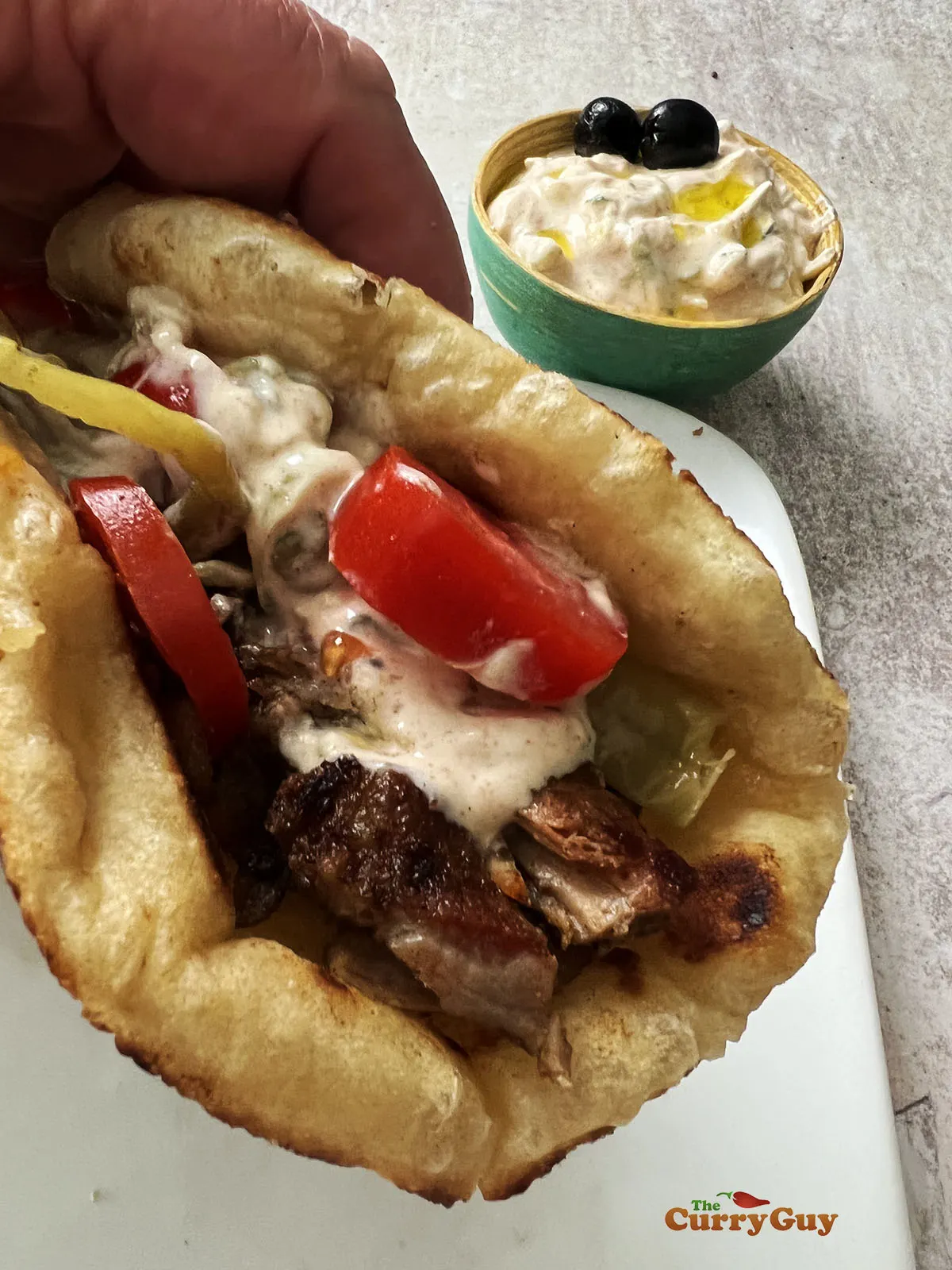
What are Greek gyros?
Pork gyros are the most popular of these Greek style wraps. You could cheat and just fry the meat but the meat filling does benefit by cooking it in a more traditional way on the barbecue.
In this recipe, you use pork shoulder that is thinly sliced and then pounded to flatten and tenderise. The pork is then skewered onto an upright spit and slowly cooked for 3 hours. Then you raise the heat to crisp it all up and sliced off as it becomes crispy.
This delicious crispy meat is then piled into pita breads and topped with salad vegetables and tzatzuki, an easy to prepare yoghurt, garlic and cucumber sauce.
Which cuts of meat are best for Greek gyros?
Quick answer, pork shoulder, chicken thighs or shoulder of lamb. All of these cuts are flavourful and will get you tasty results. These cuts have more fat in them which renders into deliciousness during the slow cooking process.
I have used pork tenderloin in this earlier pork tenderloin for pork gyros recipe which worked given that I was cooking on small skewers but you really do need the fattier cuts to bring out the traditional flavour of a gyro.
How do you prepare the meat for Greek gyros?
For best results, you need to tenderise and flatten the meat with a meat mallet. This makes it easier to stack on the upright spit.
After you tenderise the meat, you need to marinate it with a simple but tasty gyro marinade. I recommend marinating the meat for at least 24 hours but you could just go straight to cooking if you’re in a rush.
Can you purchase pitas for this recipe?
Yes. You will be much happier with your Greek gyros, however if you make your own pitas. Shop bough pitas are a bit boring but the amazing fluffy pitas you can make at home are just like you find at the best Greek restaurants.
How do you substitute other meats for the Greek gyro meat?
The recipe and method are the same. If using lamb or chicken, pound it thin with a meat mallet. Marinate the meat just as you do with the pork.
Then skewer it up. Obviously, chicken takes a lot less time to cook. You can cover chicken with the foil and cook it for about an hour before removing the foil to char the exterior.
What is the difference between Greek gyros and Souvlaki?
Greek gyros are made like this with meat that is pounded thin. Souvlaki often has a similar marinade but with chunks of meat being cooked on skewers.
Of the two, Greek gyros are the best known but souvlaki is gaining in popularity and I will be sharing souvlaki recipes here on the blog soon.
Step by step photos
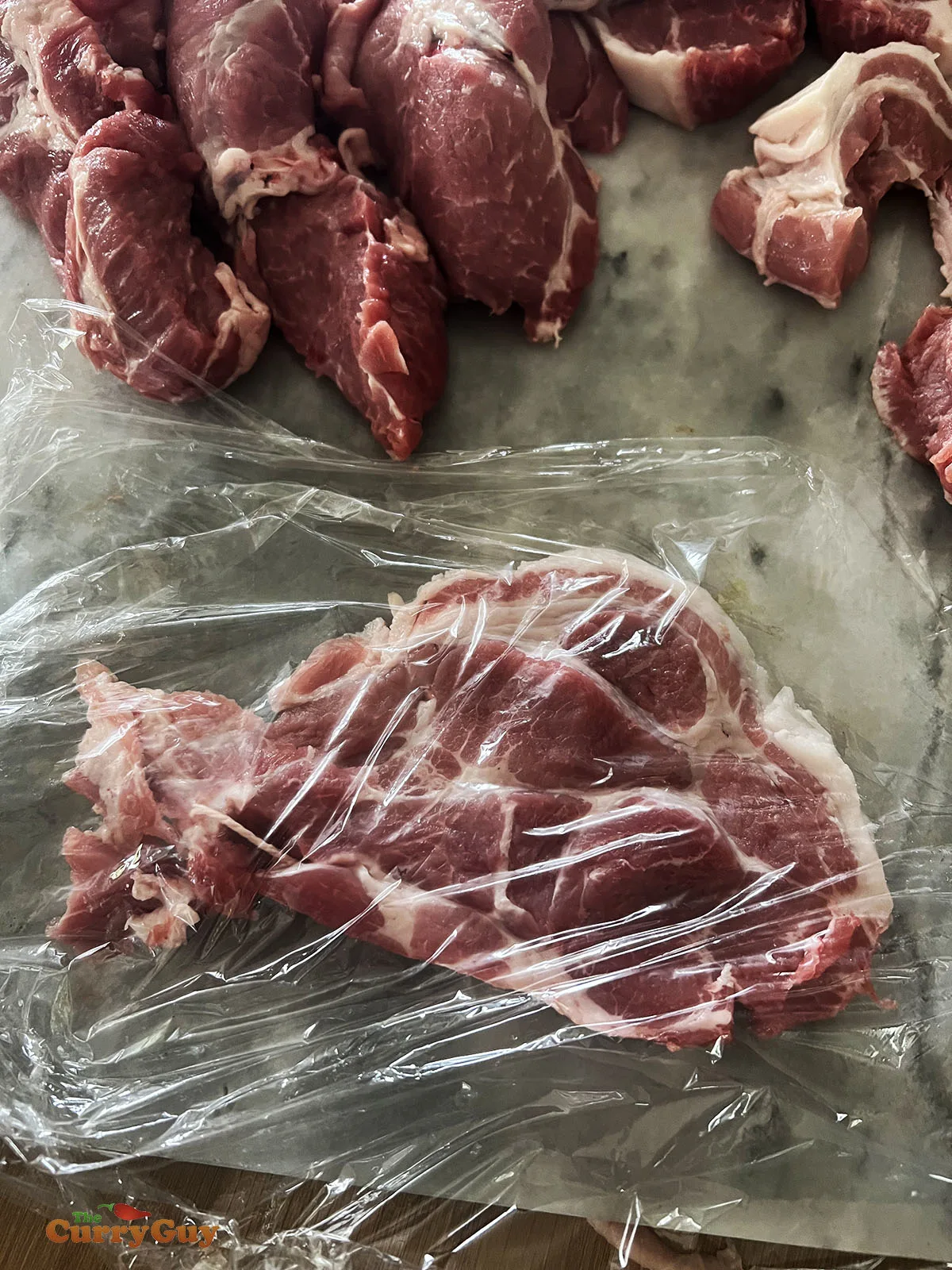
Slice your meat thinly across the grain into steaks. Then pound it thin using a meat mallet.
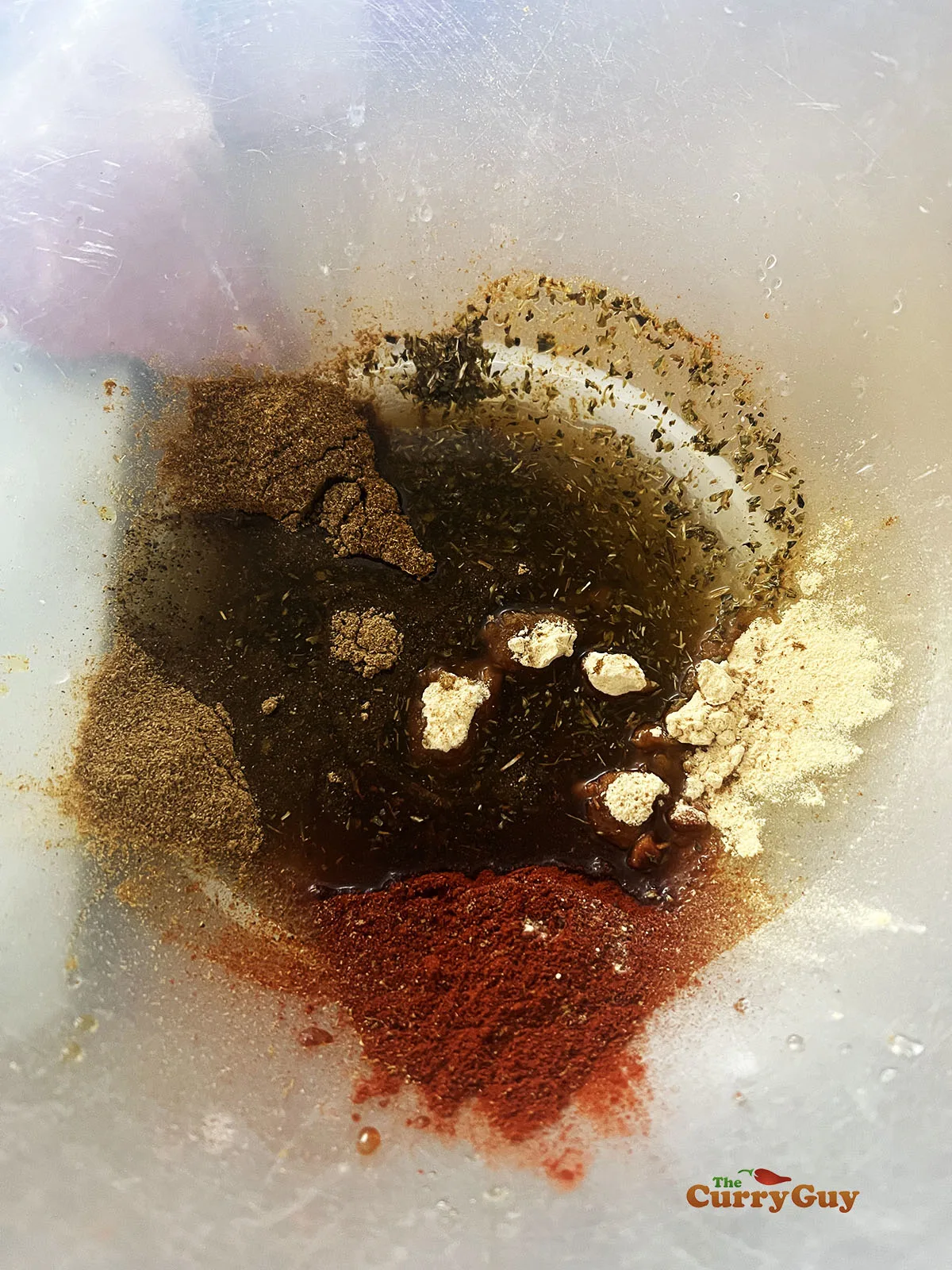
Mix all the ingredients for the marinade. If you are marinating for 24 hours, only add the lemon juice about 2 to 4 hours before cooking.
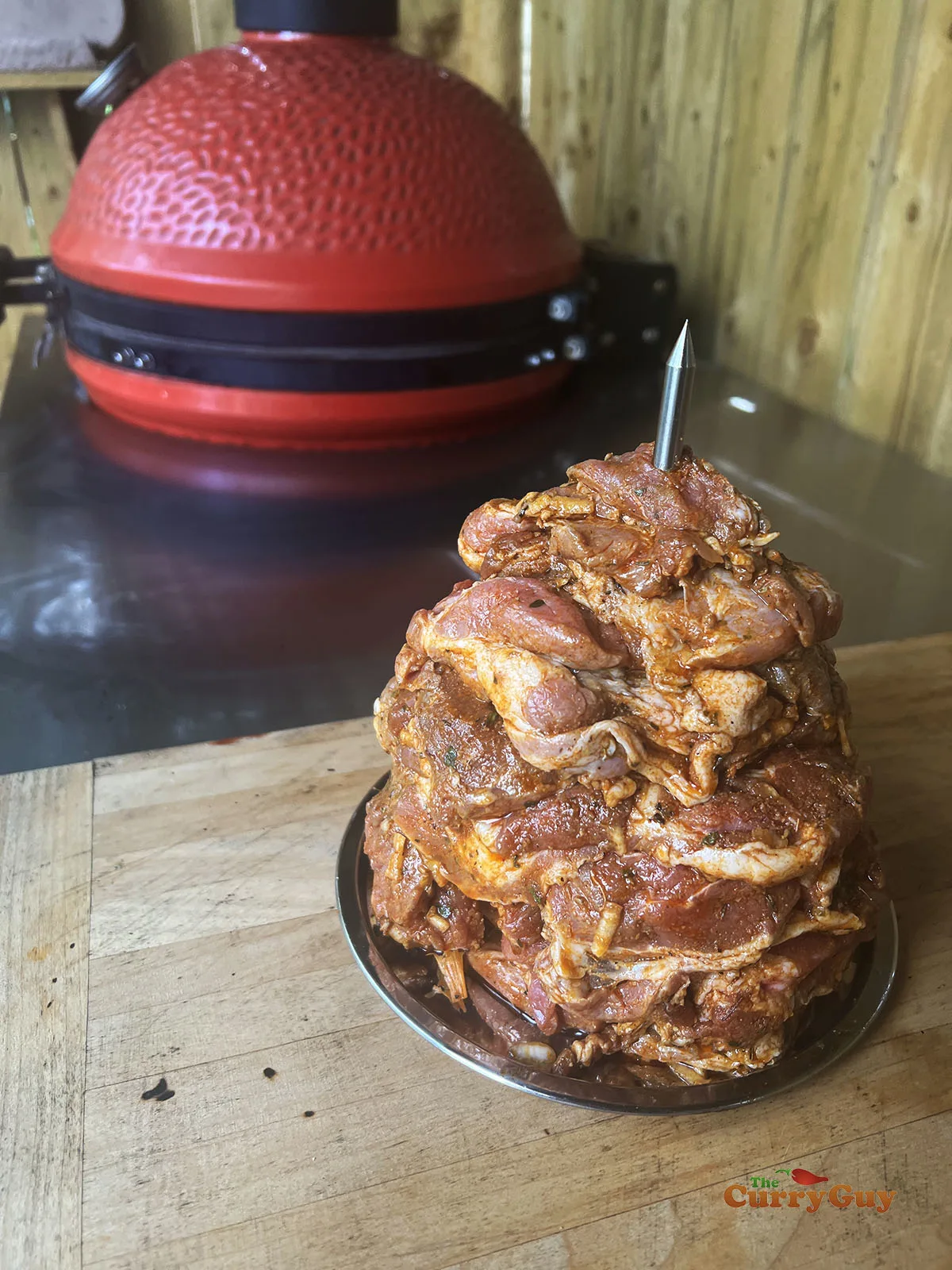
When ready to cook, thread the meat onto the skewer.
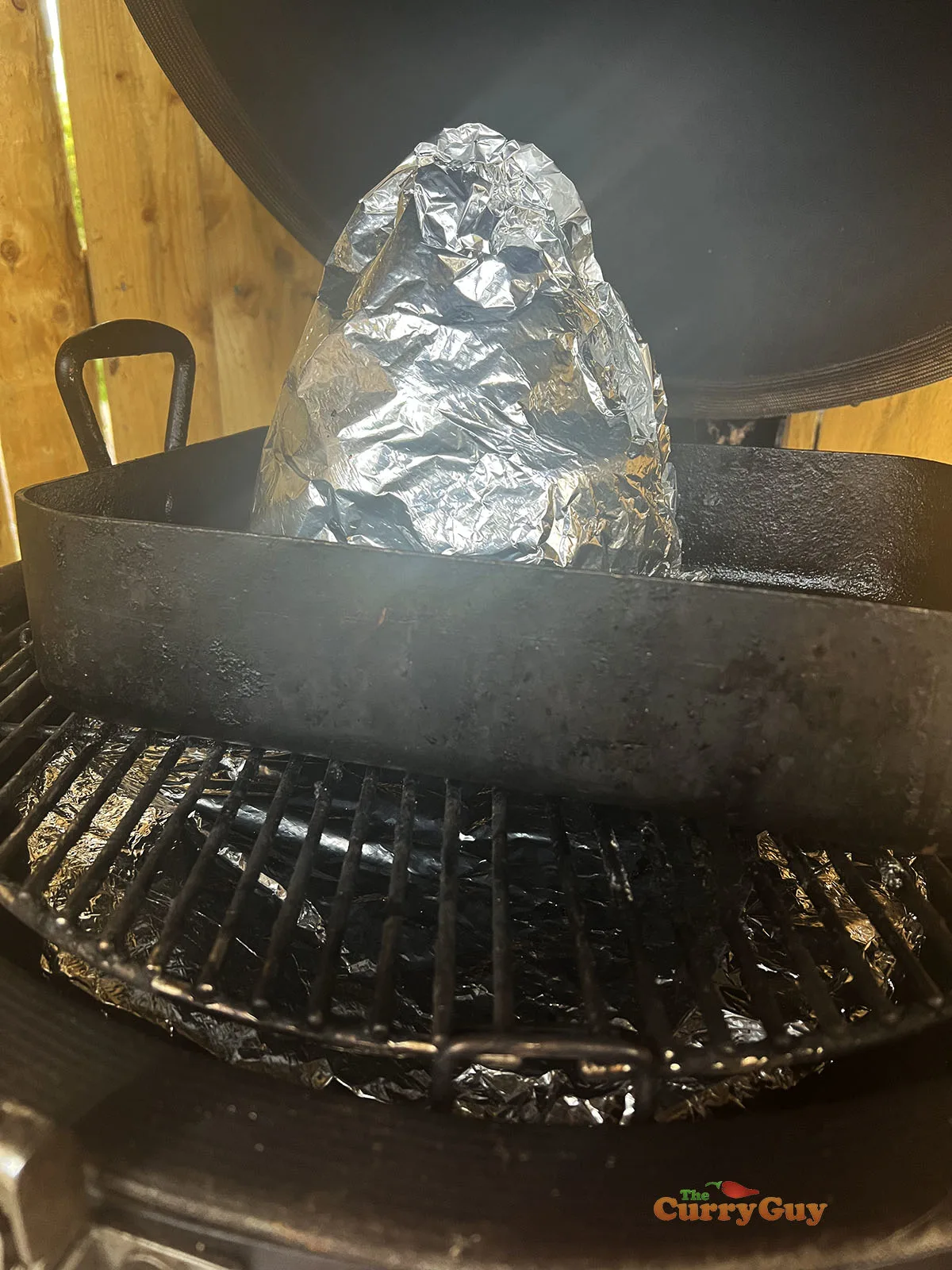
Wrap the meat with foil and place it in your oven or barbecue at a cooking temperature of 180c/356f. Cook for 3 hours.
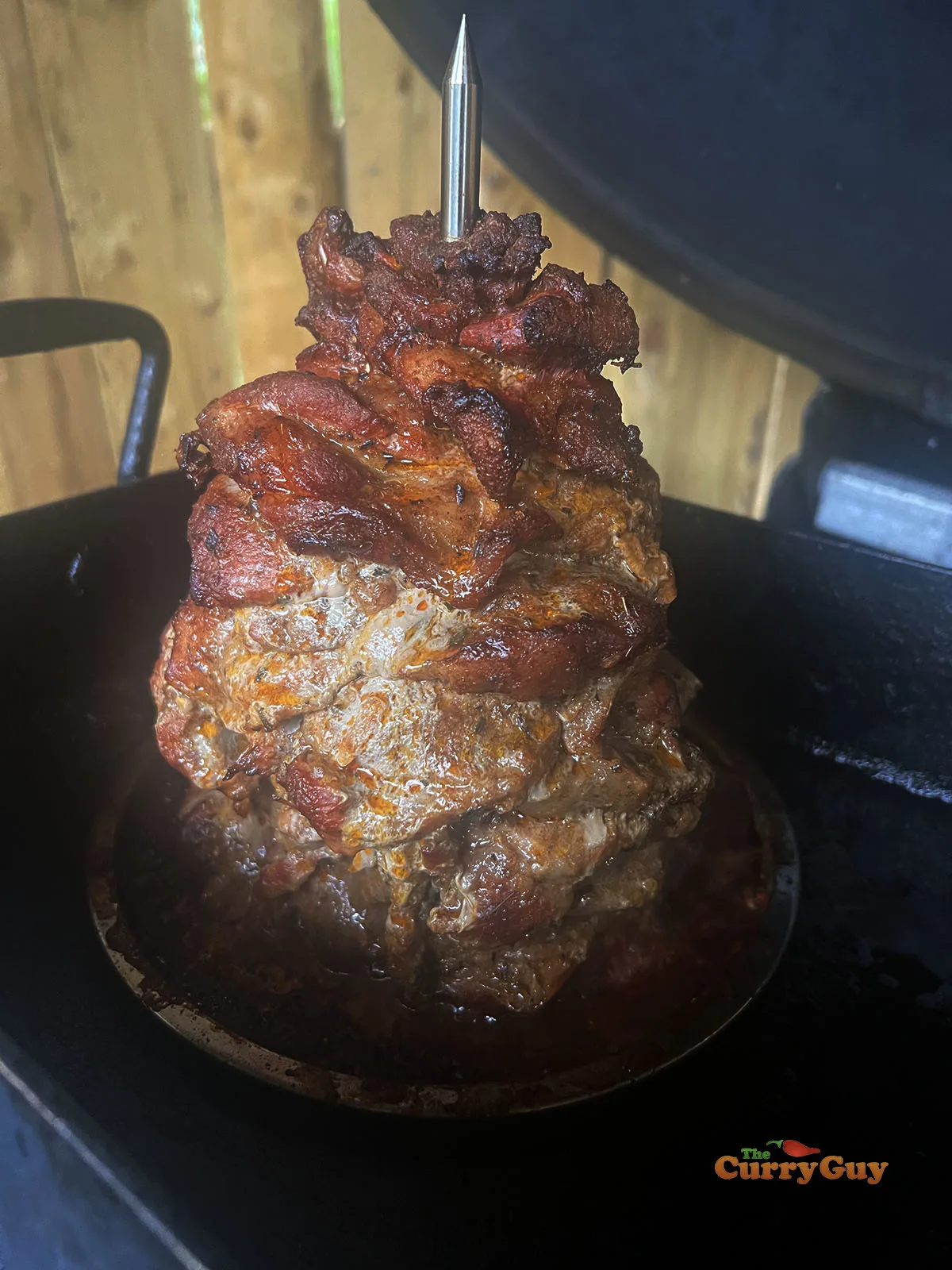
After three hours the pork will be really tender. Take off the foil and let it keep cooking to brown.
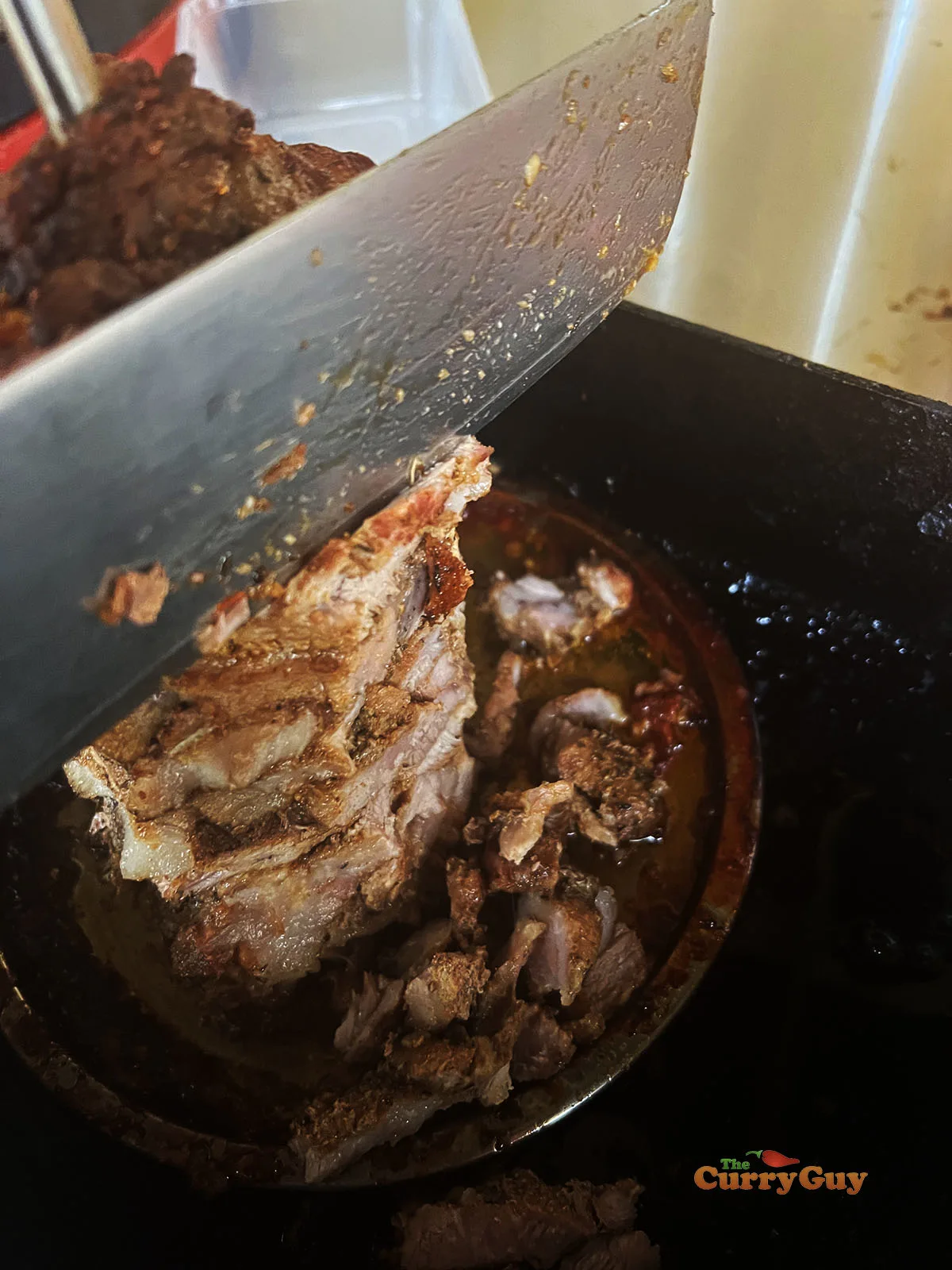
As the pork chars on the exterior, begin to slice it off. Keep warm or begin serving immediately.
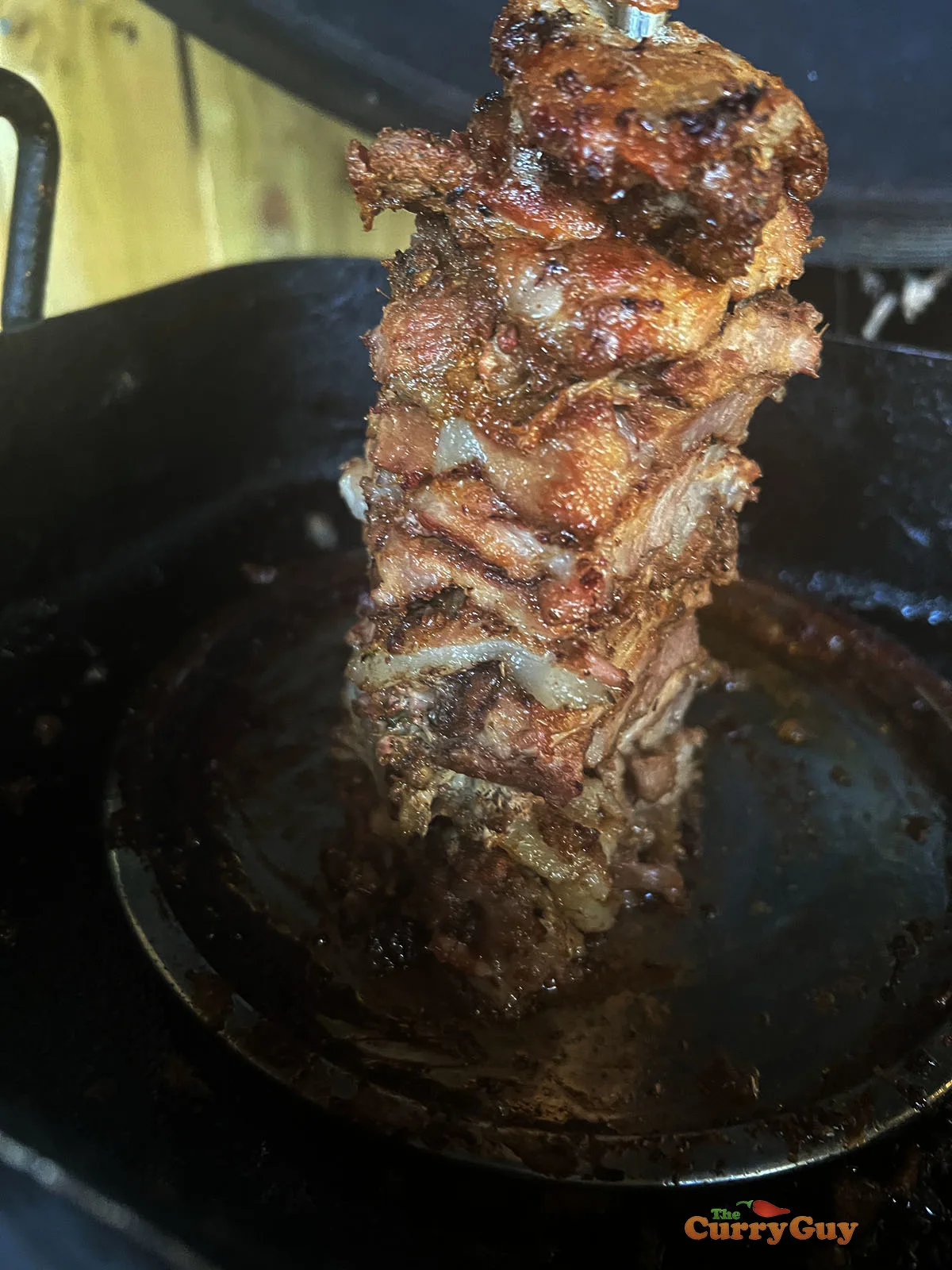
Continue cooking and shaving that meat off as it chars.
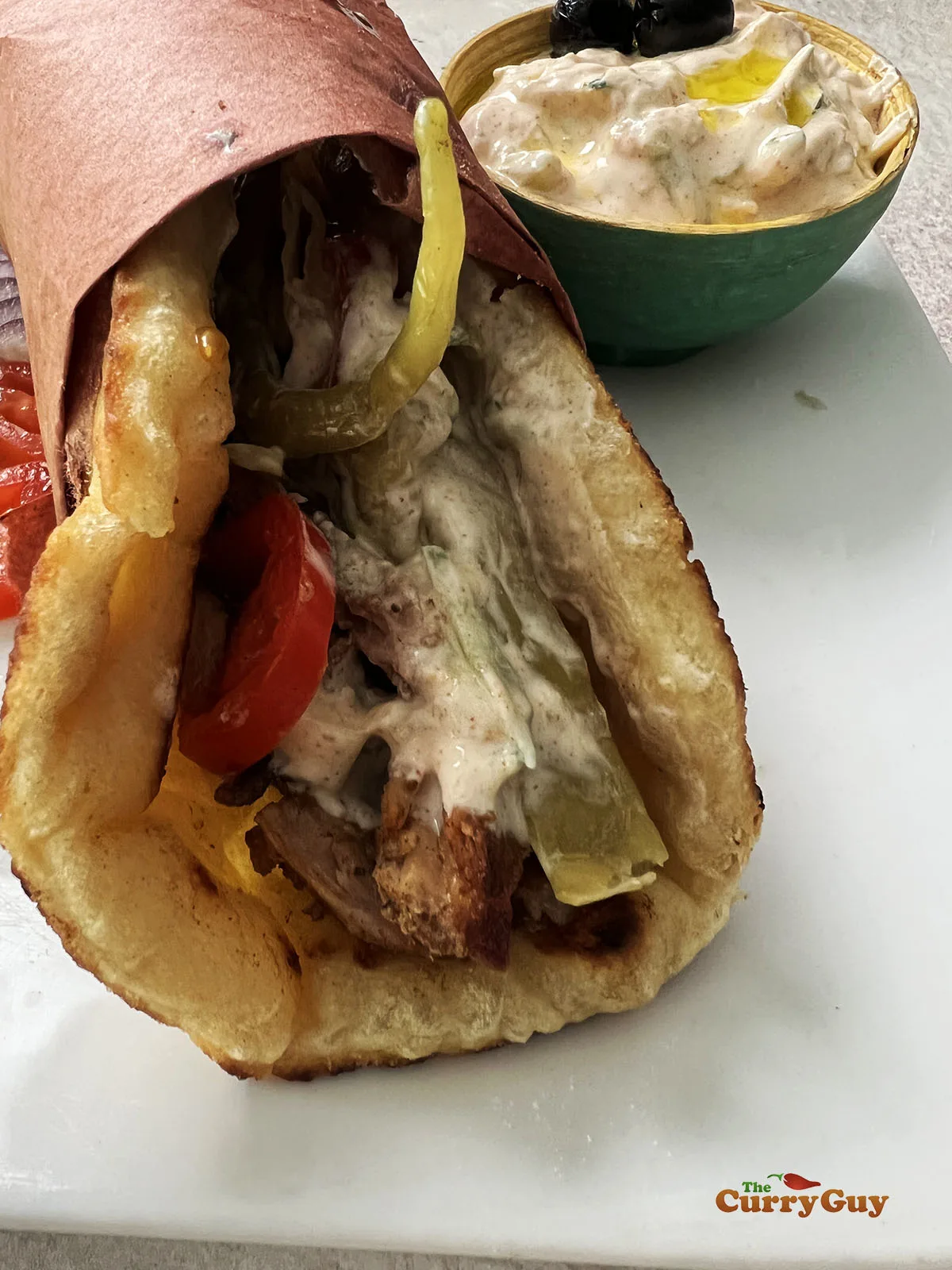
Wrap the cooked meat up in a pita and top with salad veggies and tzatzuki.
Greek Gyros
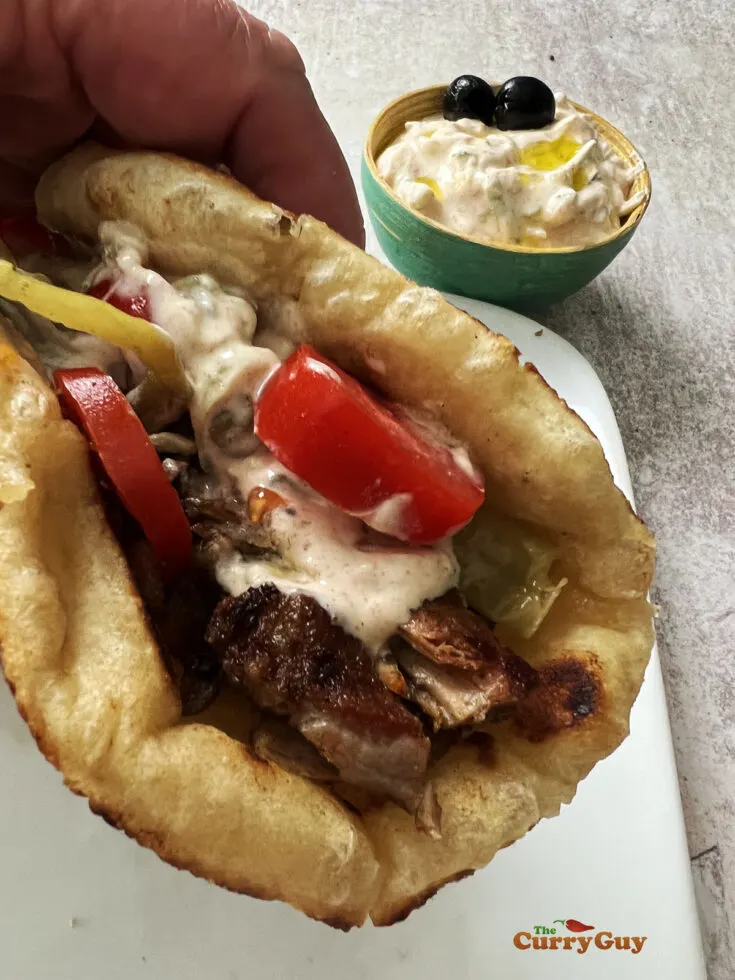
Ingredients
- 2kg (4 lbs) pork shoulder
- 70ml (1/4 cup) olive oil
- 4 cloves garlic, finely chopped
- 2 tsp paprika
- 1 tsp garlic powder
- 1 tsp onion powder
- 2 tsp oregano
- 1 tsp dried thyme
- 2 tsp ground black pepper
- 2 tsp salt
- Juice of two lemons
- TO SERVE
- 10 pitas
- Salad vegetables such as lettuce, sliced red onion, pickled wax chillies and tomatoes.
Instructions
- Slice the pork shoulder thinly across the grain into thin, 2.5cm (1 inch) steaks. Place a steak on a piece of clingfilm and top it with another piece. Then pound it with a meat mallet to tenderise and make into thinner steaks. They should be about 50% larger from the pounding. Repeat with the remaining pork.
- Now whisk all of the marinade ingredients together except for the lemon juice. If you are marinating the meat for longer than 4 hours, you do not want to add the lemon juice until about 2 hours before cooking. Marinate the meat for up to 24 hours. If you're in a rush, you could add the lemon juice and go straight to cooking but for best results, let the meat marinate for longer.
- When ready to cook, heat your barbecue or oven to 180c/356f. If cooking on a barbecue, set up your barbecue for indirect heat cooking. Skewer the pork on an upright skewer and cover with foil. Place the meat in your oven or barbecue and cook for 3 hours.
- After 3 hours, your pork will be deliciously tender. Remove the foil and let it keep cooking to char the exterior.
- Begin slicing the charged bit off and keep them warm or start serving immediately. Continue cooking the meat and shaving off the pieces of pork as it chars.
- To serve, wrap the meat up in a warm pita topped with your salad vegetables of choice and tzatzuki.
Recommended Products
As an Amazon Associate and member of other affiliate programs, I earn from qualifying purchases.







